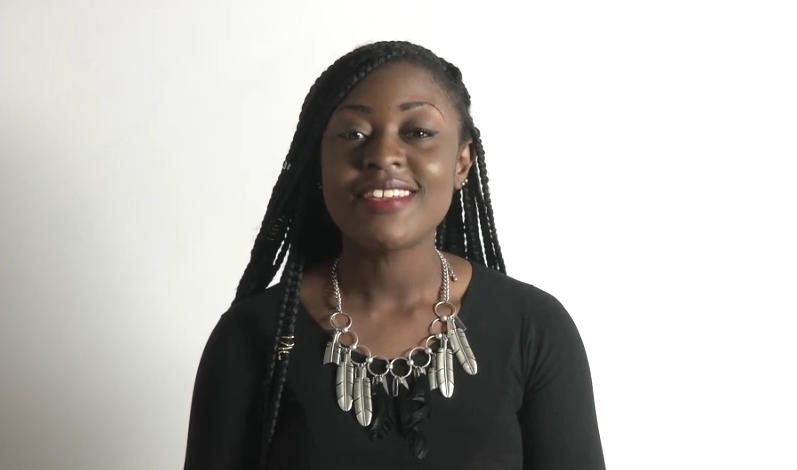This is the original proposal for the Rencontres V4T@Dakar.
Voice4Thought @ Dakar, 15-18 November 2017
‘Deciphering Radicalisation in West and Central Africa’
Motto: ‘Aménons l’Académie Dans la Rue’
Collaboration between the Ministry of Foreign Affairs, Voice4Thought and Leiden University
with partners :
Le Centre Guediawaye HIP HOP; YAM ; le Centre Senghor: Africulturban ;
Lartes et musée IFAN, Université Cheikh Anta Diop ;ENDA- Senegal
Objectives of the Festival
- Providing a platform for young(er) policy makers, researchers, journalists, activists, and active thinkers from the Sahel region to discuss regional P/CVE and radicalisation trends, radicalisation as a force for social change; religious radicalisation;
- Creating a working environment and platform for bloggers, writers and other artists who aim for a better world, and are a force in socio-political change;
- Performing arts, urban and popular culture (hip hop), art exhibition (from mostly Dakar-based) are used as means to communicate the complexities of radicalisation in a creative way.
- Dissemination of the book ‘deciphering radicalisation’ and film ‘moving radical’, produced for the festival; Moving towards another vision on radicalisation in a turbulent world;
The Festival and Caravane
The concept of Radicalisation is increasingly present in debates, official documents and research concerning the Sahel. In the media and academic publications it is often paired with terrorism, Jihadism, and (inter) national security. In short it is part of the discourse of uncertainty and conflict in the Sahelian countries, and developed in a present-day policy and security driven framework. In this framework ‘Youth’ is an important target group. However, do we understand what this radicalisation is? And about whom this discourse is talking? Who are the radicalised Youth? Do they have a voice in this discussion?
This festival is organised especially to give a voice to so-called radical Youth and to relate their voices to those who produce knowledge about them, in academia, journalism, or (social) media in general. The festival aims at a better understanding of the process of radicalisation, not only as a destructive force but also as a contribution to societal change in a more positive way.
To do so, four days are filled with panel discussions, exchange fora, workshops on blogging, arts, writing, and music. Engaged artists, journalists, religious leaders and academics will converse, argue and discuss with the general public and with the Youth who are considered vulnerable to radicalisation, and vice versa. The workshops will lead to products that will tell alternative stories of radicalisation. The discussions will also explore alternative solutions to the problems that are behind the dynamics that are labelled as radicalisation.
Target group
Youth is heterogeneous. They are the potential and actual ‘leaders’, among academics, journalists, artists, and musicians. But they are also the youth working in lower class employment, they are the still (high) school going youth and among all these youth we can find ‘radicals’. We will invite youth leaders, both from the contesting and conformist sides (political, social entrepreneurs, artists, activists, journalists, academics, security personnel (military, gendarme), religious leaders, and former youth leaders as active participants in the festival (meaning that they act in the activities) and as public in the events. Their diverse opinions and messages will be presented in such a way that it will interest a wide audience in Dakar. The participants in the festival come from the Sahel countries. Ideally we bring together young leaders and former leaders from Chad, Cameroon, Niger, Mali, Ivory Coast, Benin, Burkina Faso, Senegal and Mauretania. These are the countries that are immediately confronted with the ‘negative’ interpretation of radicalisation in a context of (in)security.
Invitees:
From Cote d’Ivoire, Mali, Benin, Niger, Mauretania, Tchad, Burkina Faso, Cameroon, Senegal, France, The Netherlands;
This festival’s topic covers the West and Central African region, and has of course its ramifications in Europe and elsewhere. However, in each country or situation ‘radicalisation’ has different forms. It is the comparison between the various contexts that will give our discussions depth. That is why we propose to invite people from different countries in the region.
We invited artists/journalists/academics from 9 countries in West-Central Africa and from 2 European countries; all the people we invite are working in the domain of social change and activism. They will provide the conference with the necessary regional and international comparisons and voices.
Activities
- Opening of the festival, with presentation of book and film and an artistic production: general public;
- Panel discussion in public space: aiming to reach out to students, academically interested audiences;
- Workshops and panel discussions in youth centres in the quartiers populaires (outskirts of Dakar): discussions with active participation of youth in these quarters; these may be students, unemployed, self-employed, working or otherwise interested young people. The specific activities in the workshops: (slam) writing; painting the quarter; DJ; creating cartoons; graffiti; etc
- The Concert with presentation of songs and music that talk about socio-political engagement, and sometimes radicalisation: a combination of artists from the region; reach out to a wide audience in Dakar; reaching out especially to the youth in the peripheral quarters of Dakar; the songs will also be used to extend the message after and beyond the festival;
- Plateau Slam where youth can present their ideas about radicalisation in the form of slam, working together with the invited artists;
- Presentation of the documentary with a debate (can be combined with another activity or as a separate event): reaching out to general public.
Organisation
Proposed venues
- IFAN- museum (University Cheikh Anta Diop, Dakar)
- Guediawaye HIP HOP- Centre
- Centre Senghor (Pikine)
At these sites: the IFAN museum is part of the University complex which is a central institute for knowledge production, it is situated in the part of Dakar frequented by students; the two centres are situated in peripheral (poor) popular quarters, where the radical youth are assumingly based.
Choosing Dakar as the overall venue of this academic-art festival is due to its regional function.





